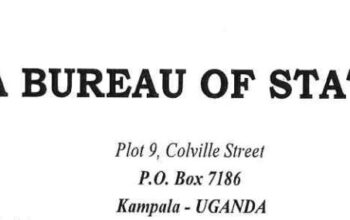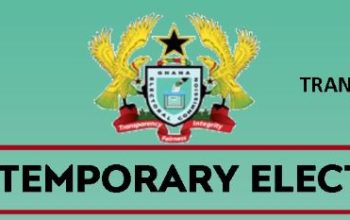Find out and download a PDF of Ghana Prisons Service (GPS) Aptitude Test Exams Questions & Answers and Likely Examination Questions. Applicants who apply for the 2021 GPS Online Recruitment after a successful Screening exercise (Body Selected and Document validation) selected applicants will be shortlisted to write an Aptitude Test to qualify for the next stage of the recruitment exercise.
Ghana Prisons Service applicants who apply to become Prisons Officers will be invited to write an Aptitude Test at the designated Examination Centers in all 16 regions of Ghana.
Table of Contents
General knowledge Questions & Answers
When was the Ghana Prisons Service Established?
Answer:
It was established in 1860 by the Colonial Government’s Prisons Ordinance and was promulgated in 1876 which gave birth to the Prisons Department in the Gold Coast.
What is the rank structure of the Ghana Prisons Service?
Officer Ranks
- Officer Cadet
- Assistant Supt. of Prisons
- Deputy Supt. of Prisons
- Superintendent of Prisons
- Chief Superintendent of Prisons
- Assistant Director of Prisons
- Deputy Director of Prisons
- Director of Prisons
- Deputy Director-General of Prisons
- Director-General of Prisons
Junior Officer Ranks
- 2nd Class Officer
- Lance Corporal
- Corporal
- Sergeant
- Assistant Chief Office
- Chief Office
- Senior Chief Office
Ghana Prisons Service (GPS) screening and shortlisted applicants
Some Equipment used by the Ghana Prisons Service
- The equipment consists of older weapons of British, Brazilian, Swiss, Swedish, Israeli, and Finnish origin. The Ghanaian Prisons Service inventory gave the following equipment: FV-601 Saladin and EE-9 Cascavel reconnaissance vehicles; MOWAG Piranha armored personnel carriers; 81mm and 120mm mortars; 84mm recoilless launchers; and 14.5mm ZPU-4 and 23mm ZU-23-2 air defense guns.
Who Is The Current Director-General of the Ghana Prisons Service
Answer:
- DGP Isaac Kofi Egyir acts as Director-General of the Prisons
What are the objectives of the Ghana Prisons Service?
Answer:
To protect the public by;
- Holding prisoners securely
- Reducing the risk of prisoners re-offending
- Providing safe and well-ordered establishments in which we treat prisoners humanely, decently, and lawfully
What is the Motto of the Ghana Prisons Service?
- The Prisons Service motto is “safe custody, humane treatment, reformation, rehabilitation and reintegration of inmates”.
Numerical Reasoning Test
A numerical reasoning test is a form of psychometric assessment commonly used in the application stages of the recruitment process. It is specifically designed to measure a applicant’s numerical aptitude and their ability to interpret, analyse and draw conclusions from sets of data.
A step-by-step guide to find fractions of numbers
When finding a fraction of a number we are, in simple terms, multiplying that number by the fraction. The easiest way to remember this is to replace the word ‘of’ with a multiplication sign, so the question ‘what is ½ of 20’ would be written as (½) x 20.
To multiply a number by a fraction, follow the steps below.
Questions
Below are some questions for you to try out yourself.
While the method for working out fractions of numbers is relatively simple in theory, it becomes more complex when working with larger figures. In these scenarios, there’s a few more steps you’ll need to take, which we’ve explained in example question 3 below.
Question 1
Kate has decided to buy a new television. The model she chose costs GH¢ 450, but is due to go on sale at two-thirds of the price. If Kate waits for the sale, how much will she save?
To find the answer to this question, we first need to work out what the sale price would be, so we need to calculate ⅔ of 450.
Multiply the whole number by the numerator, and then divide the result by the denominator:
450 x 2 = 900
900/3 = 300
Now we know the sale price would be GH¢ 300, we can subtract that from the original cost to work out the saving:
450 – 300 = 150
Answer: Kate would save ¢ 150.
Question 2
Sam works a 37-hour week in retail. He spends ¾ of his time on the shop floor, and the rest working in the warehouse. How many hours per week does Sam spend on the shop floor?
If we multiply the whole number by the numerator here, we get an answer of 111.
111 is not equally divisible by the denominator, so we know we’ll have a remainder.
4 goes into 111 27 times, leaving a remainder of 3. So we’re left with an answer of 27 ¾.
Answer: We can’t simplify ¾, so we can say that Sam spends 27 ¾ hours on the shop floor every week.
Question 3
Jack was rewarded with GH¢ 550 by his parents for performing well in his previous exam. He decided to use 3/10 of this to purchase a new fitness device. How much does the fitness device cost?
As we’re working with larger numbers here, you may find it easier to simplify the equation first. To do this, look for common factors shared by the whole number and the denominator of the fraction, and cancel them out.
In this case, we can see that both 550 and 10 are divisible by 10, leaving 55 and 1 respectively. We can now simplify 3/10 of 550 to 3/1 of 55.
Now complete the equation by multiplying the whole number by the numerator, and dividing the result by the denominator:
55 x 3 = 165
165/1 = 165
Answer: The fitness device that Jack bought cost him GH¢ 165.
Basic Numeracy
1. What is the next number in this series?
1, 5, 9, 13, 17, _
A. 15
B. 23
C. 21
D. 20
Answer: The rule for this pattern is to add 4 to the previous number, so in this case, the answer would be C. 21
2. Find the missing number in the series.
120, 60, 30, __, 7.5, 3.25
A. 20
B. 5
C. 18
D. 15
Answer: This sequence is solved in the same way as above, even though the missing number is in the middle. The relationship between each number is the division by two of the previous number – and it’s important to understand that the terms in a series don’t need to be integers. In this question, the missing term is D. 15.
3. What is the next number in this sequence?
2, 5, 11, 23, 47, __
A. 95
B. 101
C. 94
D. 97
Answer: This pattern combines geometric and arithmetic sequences, and the rule is that each number is the previous number multiplied by two, and then add one.
The difficulty here is establishing the right combination of mathematical functions that are needed. In this example, the next term in the series would be 95, so the answer is A.
4. Your phone bill is GH¢ 42. It increases by 10% after 12 months, and a further 20% increase is applied six months later. What’s the price of your phone bill after 18 months?
Solution
10 + 100 = 110, expressed as 1.10 as a decimal
20 + 100 = 120, expressed as 1.20 as a decimal
42 x 1.10 = 46.2
46.2 x 1.20 = 55.44
Answer: GH¢ 55.44
5. Find the mean average of 3, 15, 8 and 22
3 + 15 + 8 + 22 = 48
48 ÷ 4 = 12
Answer: 12
Situational Judgement Aptitude Test Questions and Answers
Passage
At a recent departmental meeting one of your more senior colleagues appears to be acting intentionally awkward towards you. Whenever you make suggestions relating to the topic area being discussed they interrupt you and come up with reasons why your suggestion is not workable. You have known this person since you joined the business six months ago and you have always got on well. They have been with the company for over 2 years and seem to be well respected by most people. You have heard rumours that they are having personal issues at the moment. You are only 1 hour into an all-day meeting. What would you do?
Q1) Read the passage and select how you would most likely and least likely respond:
A. Wait until the next coffee break and ask the colleagues you are closer to whether they have noticed this behaviour and ask for their thoughts on how to deal with the situation, particularly considering the delicacy of the personal issues that may be ongoing for the individual concerned.
B. Ignore their behaviour and continue to input to the meeting in a confident and supportive manner. This will show your peers and manager that you can handle difficult situations and as you have always got along well with this person in the past this is probably a one-off. Everyone has bad days and as a colleague it is up to you to not make anyone feel worse than they do already.
C. Attempt to face the problem head on in the meeting. The situation is reflecting badly on you and you do not want your line manager to think that you can’t stand up to someone just because they have more experience than you. Wait to see if it happens again and then politely ask whether they have an issue with you that they would like to discuss in more detail.
D. Wait until the coffee break and then ask the person you are having the issues with if they could spare five minutes for a chat. Politely ask them whether you have done something to offend them as you feel their attitude towards you this morning has been somewhat negative. Ask if there is something you can do to improve the situation as it is making the meeting awkward for everyone.
Answer
A. Least likely. This response could make the problem worse on a number of levels. Firstly, you have flagged the issue to people who do not really need to be involved. By talking about your colleague with these people you are potentially making the issue bigger than it was initially as they will be looking for any signs of the problem continuing or getting bigger. Secondly, you are bringing up someone else’s personal issues that are of no concern to your other colleagues regardless of how well you get on with them.
D. Most likely. This approach ensures that the problem is addressed before it becomes any worse. As there may be a genuine reason why they are obstructing your suggestions it shows that you are willing to listen to and learn from other people. It also does so in a non-public forum so that you can both share your views freely.
Recommended
Ghana Police Service Aptitude Test Past Questions and Answers |PDF
25 Aptitude Test Questions and Answers
Ghana National Fire Service Aptitude Test Exams Questions and Answers
Ghana Immigration Service Aptitude Test Past Questions and Answers





